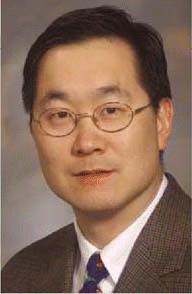Approximately 28 million people living in the United States suffer from some degree of hearing loss. It is the most frequently occurring birth defect—about three of every 1,000 babies are born with hearing loss. Years of research indicate that prompt diagnosis and treatment of hearing loss is key in helping these individuals to function with little or no handicap. Because of vast improvement in technology and screening programs, the goal of early diagnosis and treatment of hearing loss is now within our reach.
Explore This Issue
September 2009In 1988 the Commission on Education of the Deaf reported to Congress that the average age at which children with congenital hearing loss were identified was 2½ to 3 years, and in many cases, not until 5 or 6 years. This delay in identifying—and treating—hearing loss in children makes it difficult or impossible for these children to develop fundamental language, social, and cognitive skills. Research has shown that children who receive early intervention and amplification (before 6 months vs after 6 months of age) are one to two years ahead of their later-identified peers in language, cognitive, and social skills by the time they enter first grade. For this reason, the National Institutes of Health’s (NIH) consensus Development Conference on Early Identification of Hearing Loss in 1993 concluded that all infants should be screened for hearing impairment, preferably prior to discharge from the hospital.
“Children with middle ear fluid often undergo multiple screening tests, a big cost for all of us to have to incur. Often, if we can medically or surgically treat that fluid, the loss may resolve. Otolaryngologists are in the best position to pick up on that and render the appropriate treatment.” – —Albert H. Park, MD
To this end, the Centers for Disease Control and Prevention (CDC) has developed the Earlier Hearing Detection and Intervention Program (EHDI). This program has several goals, including:
- Early screening (initial testing).
- Audiologic evaluation (to confirm hearing loss).
Early intervention (including medical treatment, early intervention services, and support) to enhance communication, thinking, and behavioral skills needed to achieve academic and social success.
This program recommends that all newborns be screened for hearing loss before 1 month of age, preferably before discharge from the hospital. It further advises that all infants who fail the initial screening should have a diagnostic audiologic evaluation before 3 months of age, and all infants identified with a hearing loss should receive appropriate intervention before 6 months of age.

Leave a Reply